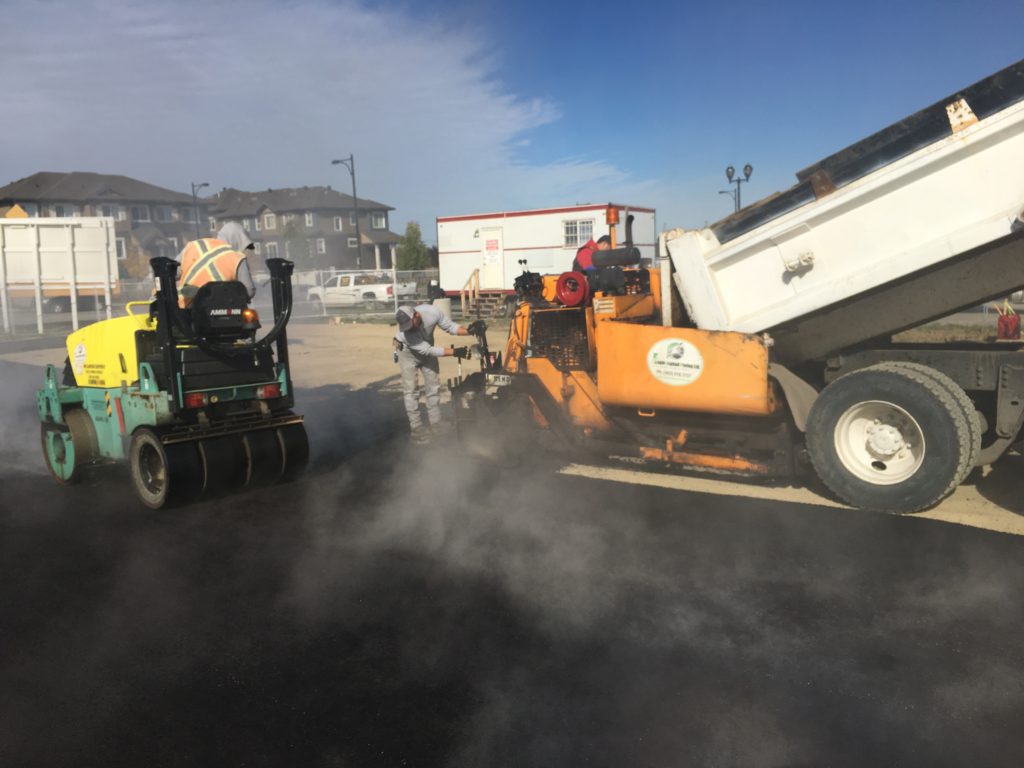Asphalt (commonly called asphalt, blacktop, or pavement in North America. It is commonly used to surface parking lots, driveways and roads. Asphalt mixtures have been used in pavement construction since the beginning of the twentieth century.
Asphalt is one of the most popular materials used for pavements. All thanks to its cost-efficiency, its easy repair and maintenance, as well as its visually appealing look.
In general it has two main options – hot mix asphalt and cold mix asphalt.
Hot Mix Asphalt:
Hot mix asphalt is a mixture of aggregates like sand, gravel, and asphalt cement which is then heated before being applied. This is usually used by heating the asphalt mix up to 300-500 degrees at the production facility before being shipped and laid at the target location.
Hot mix asphalt is used for large-scale projects like roads, parking lots, and driveways.
Hot mix asphalt is very durable, making it ideal for roads and highways with lots of traffic.
Cold Mix Asphalt:
Cold mix asphalt is one of the basic asphalt types and is commonly used for repairs or small-scale patches. It doesn’t require heating and bags of asphalt can be poured directly on potholes or cracks to prevent the damage from spreading.
While not as strong as hot mix asphalt, it is much more affordable and can be a perfect choice for temporary fixes when the weather won’t allow for hot mix asphalt installation.
Cold mix asphalt is not strong enough to support regular traffic from vehicles
Asphalt is the sustainable material for constructing pavements. From the production of the paving material, to the placement of the pavement on the project to rehabilitation, through recycling, asphalt pavements minimize impact on the environment. Low consumption of energy for production and construction, low emission of greenhouse gases, and conservation of natural resources help to make asphalt the environmental pavement of choice.
